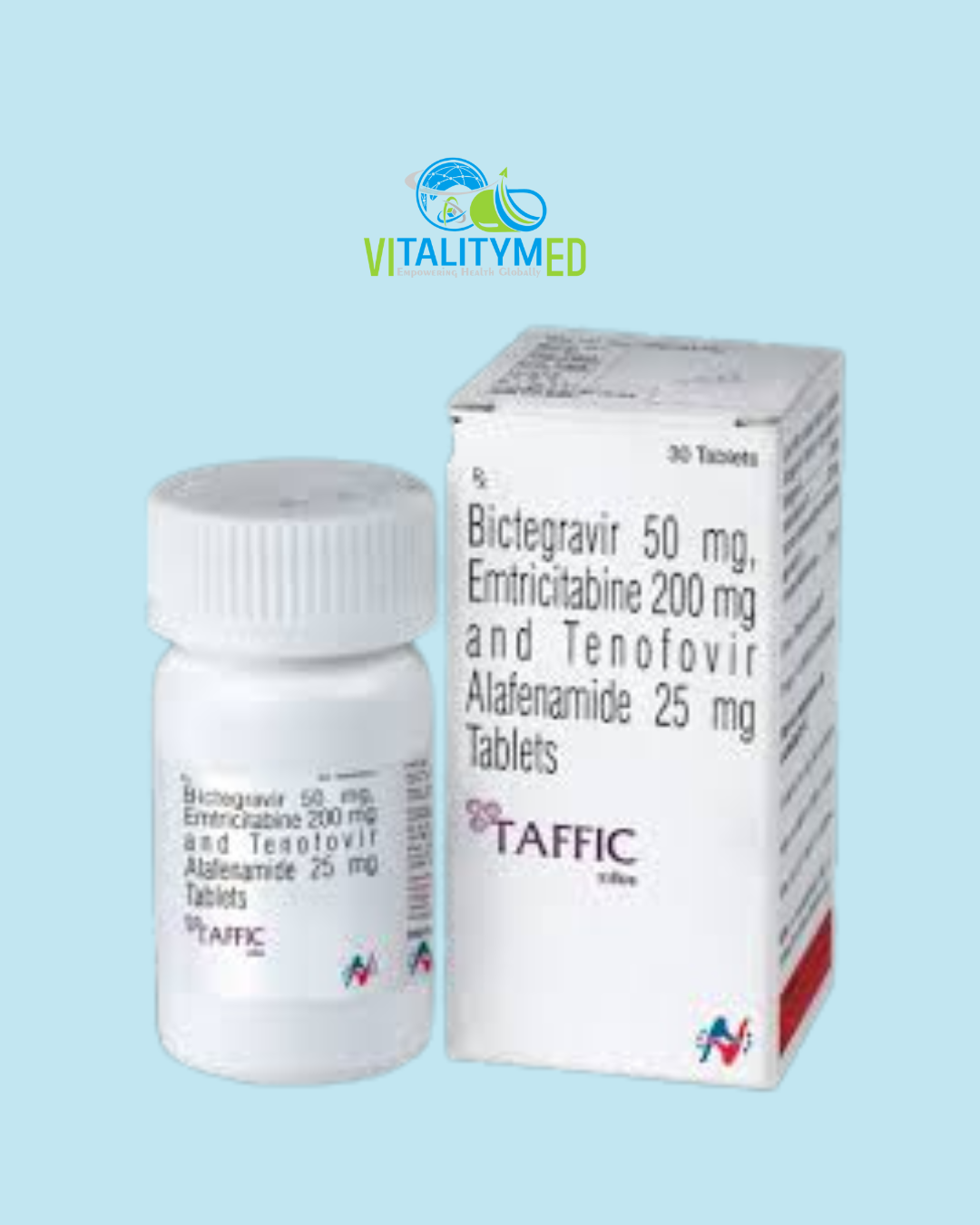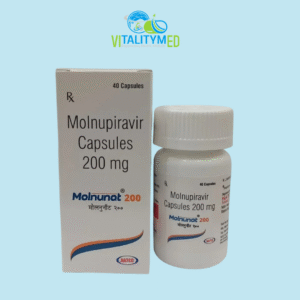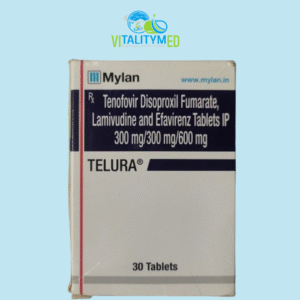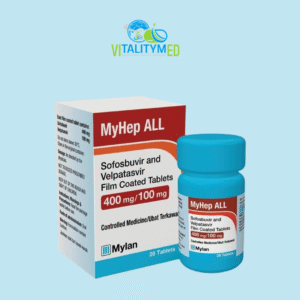Taffic is a once-daily oral combination tablet used for the treatment of Human Immunodeficiency Virus type 1 (HIV-1) infection. It contains three active antiretroviral agents: bictegravir, emtricitabine, and tenofovir alafenamide. Together, these medicines work to control the virus and help people living with HIV lead healthier lives. Taffic is often prescribed to adults and adolescents who are either new to HIV treatment or already stable on another regimen.
Mechanism of Action:
Taffic targets the HIV virus at multiple stages of its life cycle using a combination of three powerful agents:
-
Bictegravir is an integrase strand transfer inhibitor. It stops the virus from inserting its genetic material into human DNA, a critical step for the virus to multiply and spread in the body.
-
Emtricitabine is a nucleoside reverse transcriptase inhibitor. It interferes with the process by which the virus converts its RNA into DNA, essentially causing premature termination of the viral DNA chain.
-
Tenofovir alafenamide is a prodrug of tenofovir, also a reverse transcriptase inhibitor. It gets activated inside human cells and blocks another key enzyme the virus needs to make new copies of itself.
Uses:
Taffic is primarily used for:-
Treating HIV-1 infection in adults and adolescents who weigh at least thirty-five kilograms.
-
It is suitable for people who have never received HIV treatment before or who are already virologically suppressed and want to switch to a more convenient regimen.
Adverse Effects:
Taffic is generally well-tolerated, but some individuals may experience side effects. The most commonly reported ones include:-
Headache
-
Nausea
-
Diarrhea
-
Tiredness or fatigue
-
Trouble sleeping
-
-







